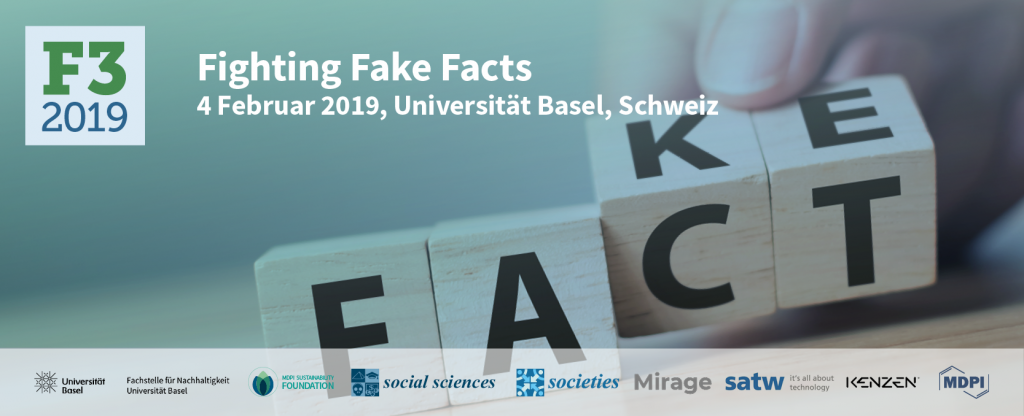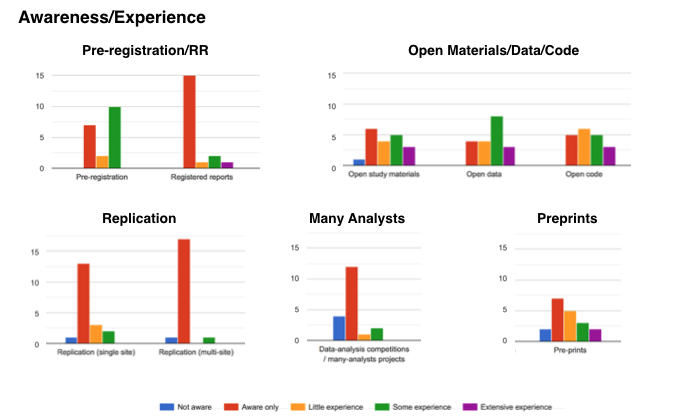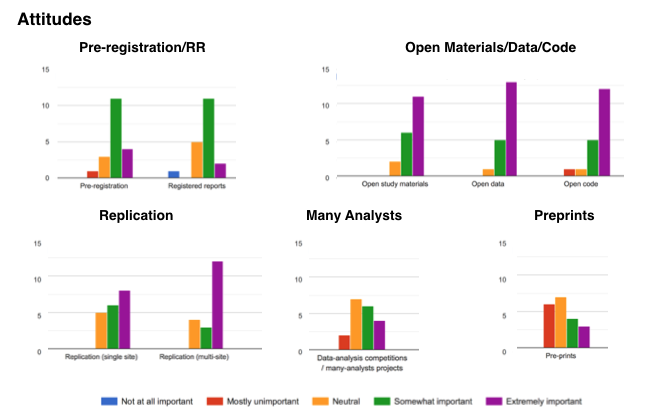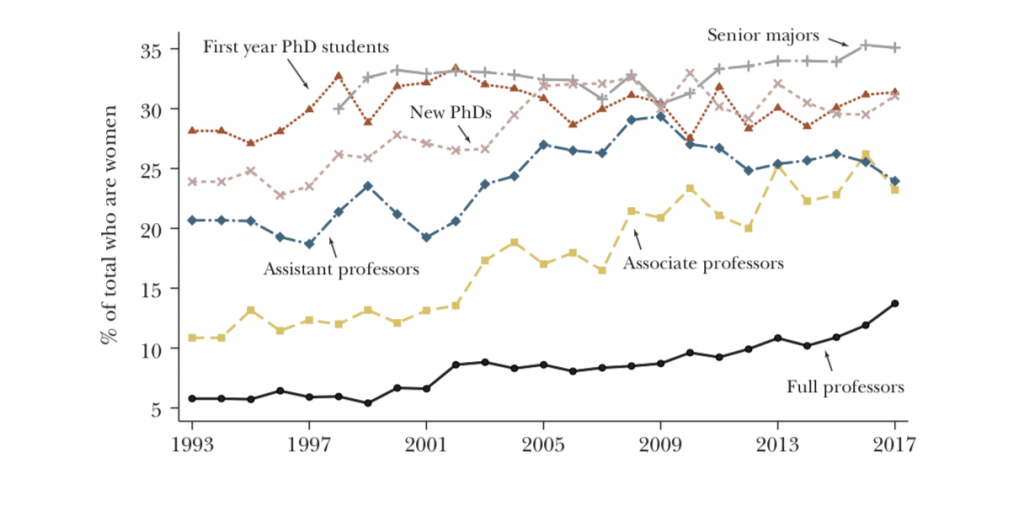
The Journal of Economic Perspectives has recently put out a symposium on “Women in Economics” which discusses among other things the “leaky pipeline” in the discipline, that is, the fact that “the fraction of women in the discipline decreases at each stage along the path from graduate school to the full professor rank” (see the figure above from Lundberg & Stearns, 2019, for institutions in the US). The same likely applies to psychology, given the ratio of female undergrad/grad students to female professors in our discipline (see the figure below from Antoni, 2019, for Germany).
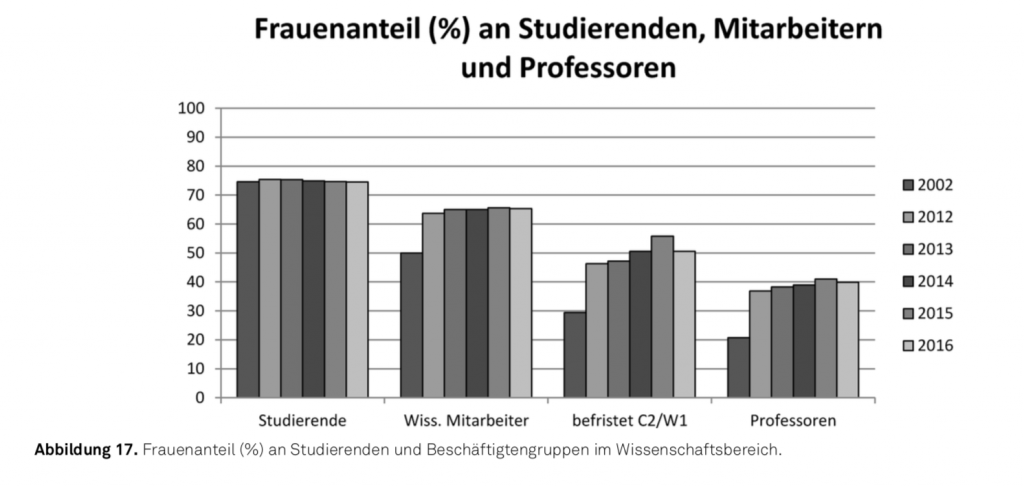
The piece by Buckles (2019) in the JEP symposium is particularly interesting because it focuses on an evidence-based assessment of strategies for increasing (gender) diversity in economics. It reviews the literature focusing on randomized trials and suggests that there may be something to be gained from different interventions focusing on information (e.g., increasing knowledge about earnings or distribution of grades needed to enter the field), inspiration (e.g., presence and mentoring by female role models), and structural support (e.g., flexible work arrangements, maternity and family leave). It’s good to see that some of these measures are in place at our institution (see Antelope) but Buckles provides a few more ideas that could be implemented…
[On a methodological note, I find it quite telling of the zeitgeist in economics that Buckles ends her piece by focusing on causal inference:
“Research in this area faces several challenges to causal identification (emphasis added)—it can be difficult to find reasonable comparison samples, treatments are often bundled, and outcomes can be difficult to measure or take years to be realized. Even in cases where a “gold standard” randomized trial was used to evaluate an intervention, questions about external validity and replicability remain. As a result, we will likely have to try some things without knowing for certain that they will work. (…) But this challenge also presents an opportunity for the profession to put its policy evaluation toolkit to work to advance knowledge, by building evaluation into implementation of policies or by finding creative ways to evaluate interventions after they have occurred. To aid this effort, the AEA (American Economic Association) could create a registry for randomized controlled trials aimed at attracting or retaining women and other underrepresented groups to economics.”]
Antoni, C. H. (2019). Zur Lage der Psychologie. Psychologische Rundschau, 70(1), 4–26. http://doi.org/10.1026/0033-3042/a000429
Buckles, K. (2019). Fixing the leaky pipeline: Strategies for making economics work for women at every stage. Journal of Economic Perspectives, 33(1), 43–60. http://doi.org/10.1257/jep.33.1.43
Lundberg, S., & Stearns, J. (2019). Women in economics: Stalled progress. Journal of Economic Perspectives, 33(1), 3–22. http://doi.org/10.1257/jep.33.1.3

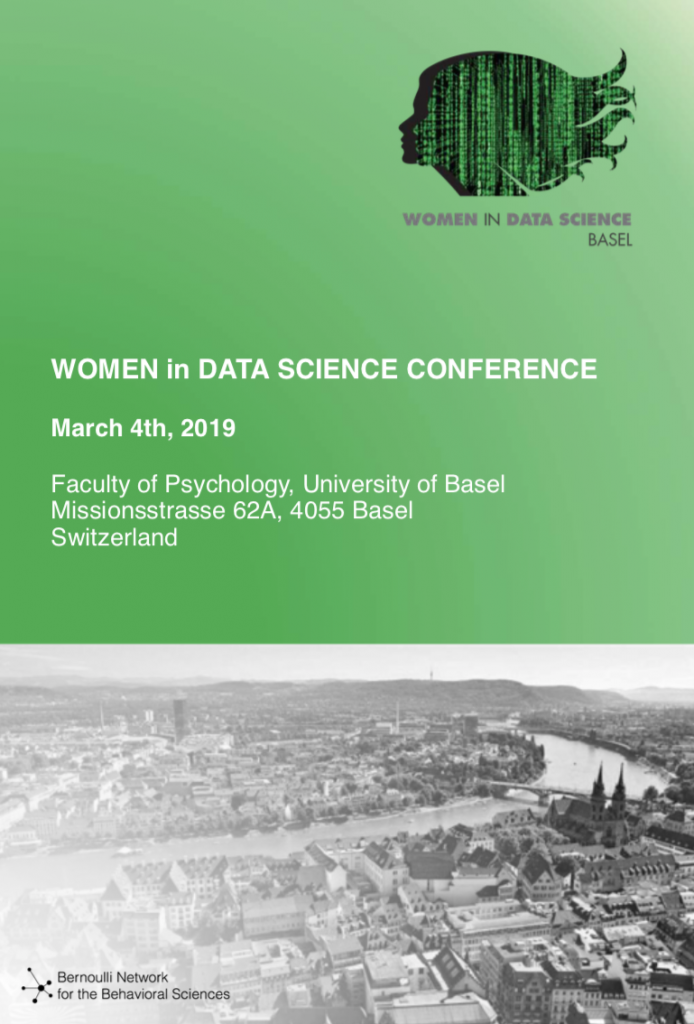


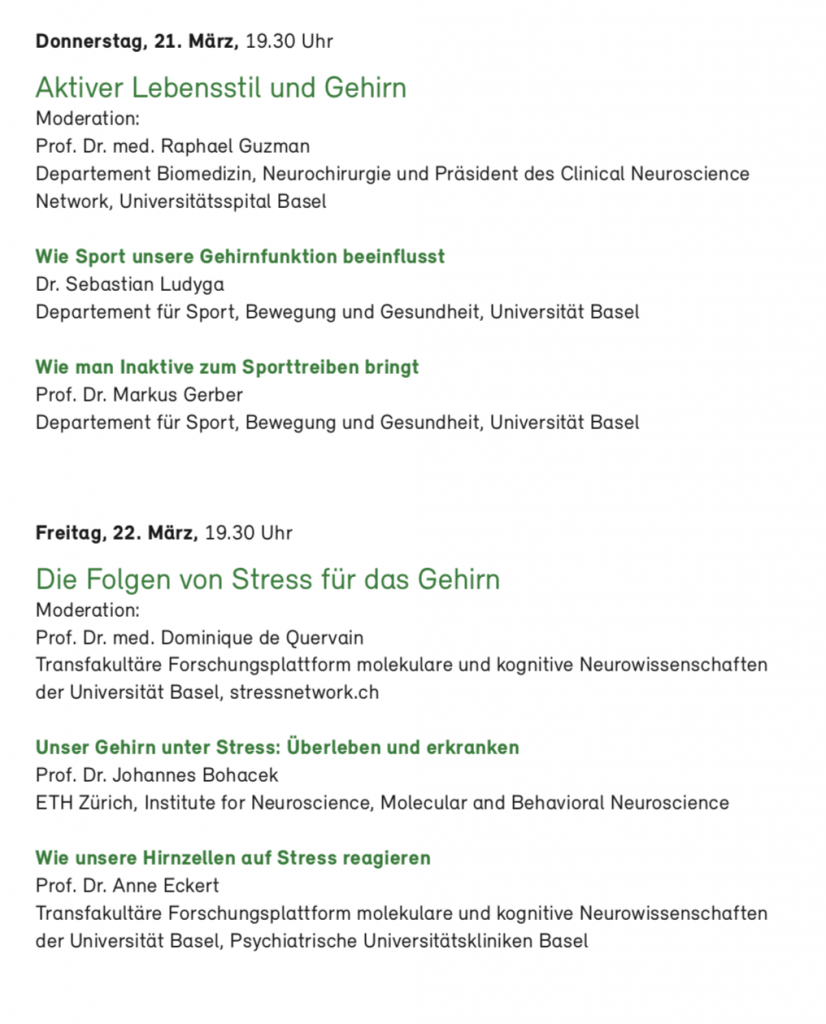


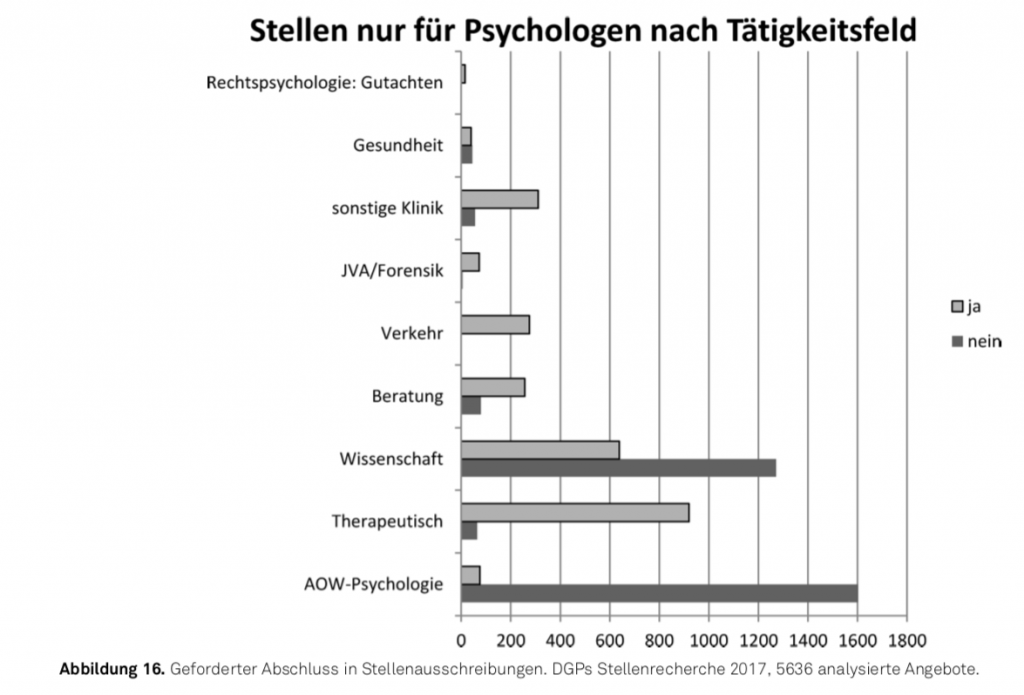 A new update on the jobs available to psychology students suggests that most job announcements for psychologists (in Germany) are in the area of Organizational Psychology, albeit these positions are typically also directed at applicants from other fields, such as economics. Overall, the picture seems similar to the one we reported back in
A new update on the jobs available to psychology students suggests that most job announcements for psychologists (in Germany) are in the area of Organizational Psychology, albeit these positions are typically also directed at applicants from other fields, such as economics. Overall, the picture seems similar to the one we reported back in 